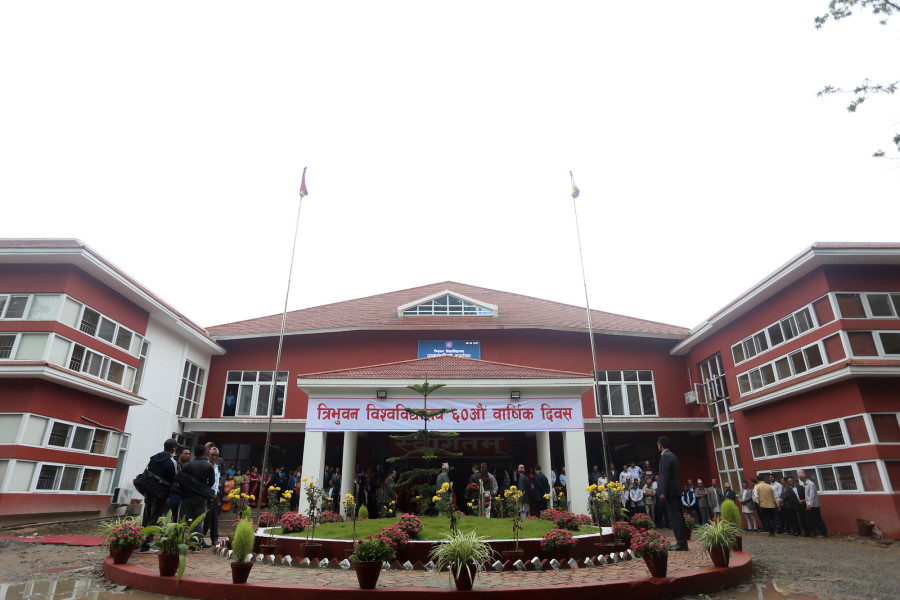Editorial
Integrity in academic appointments
Keep politics out of the selection process for university positions.
Nepal’s higher education system is flawed. Marred by years of political interference, the universities have taken great hits to their reputation recently—with controversies ranging from cronyism and nepotism in the hiring of professors to corruption in the grading system. The vice-chancellor of Tribhuvan University has even been accused of plagiarism. With all these issues plaguing higher education in Nepal, it seems destined to fail in the long run. But the universities have a chance to renew their future. The vice-chancellors and other officials of around a dozen universities—appointed through political connections—are retiring next month.
This is the right time to revamp the selection process for university officials to keep it free from political interference. There are sound recommendations already in place. In May, a task force led by Education Joint Secretary Hari Lamsal recommended ways to make the process of selection of university officials free of politicisation. The government needs to seriously consider these recommendations and implement them before picking the next set of university officials.
For years, the selection process for vice-chancellors, rectors and registrars has been faulty. Currently, the practice has been for a search committee formed under the education minister to recommend names for selection, and the prime minister—who is also the ex-officio chancellor—picks the ones he wants. There are many defects in this process that allow vested political interests to surface. For one, a committee led by a member of the cabinet can never be considered to be free and fair.
Moreover, the power of the prime minister to ultimately appoint the officials means that unilateral decisions can be made, and have been done so in the past. In actuality, the posts become part of a bargaining game among political parties. For instance, after installing their man in the post of vice-chancellor of Tribhuvan University in 2015, the Nepali Congress-led government allocated the posts of rector and registrar to the then CPN-UML and CPN (Maoist Centre) respectively. This has, in turn, led to appointed officials manipulating the system to hire professors that they know, over people that deserve to be hired.
The recommendations that the task force made could make a marked difference. They call for the search committee to be formed under the purview of the University Grants Commission instead of the Education Ministry. The committee would propose three candidates, from which the chancellor of the university could pick the most deserving one. To further separate the process from political influence, the task force recommended that the posts of university chancellor be divvied up between the president and vice-president, instead of allowing the head of government—the prime minister—to continue to hold these posts.
That the government has allowed these recommendations to sit idle for months without review is a travesty. Perhaps it is purposedly doing so, to allow politically influenced appointments at the universities next month. If that is the case, the government will have seriously failed its own professed agenda of stemming corrupt practices.
***
What do you think?
Dear reader, we’d like to hear from you. We regularly publish letters to the editor on contemporary issues or direct responses to something the Post has recently published. Please send your letters to [email protected] with "Letter to the Editor" in the subject line. Please include your name, location, and a contact address so one of our editors can reach out to you.




 9.89°C Kathmandu
9.89°C Kathmandu














